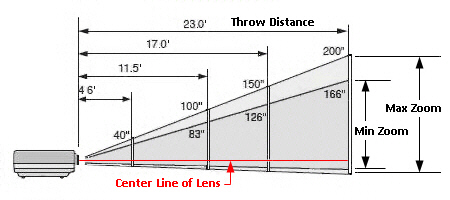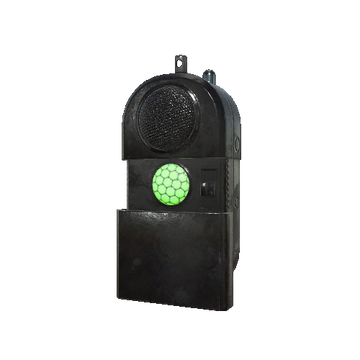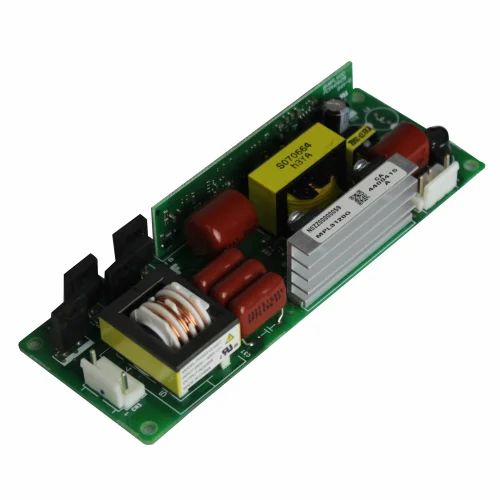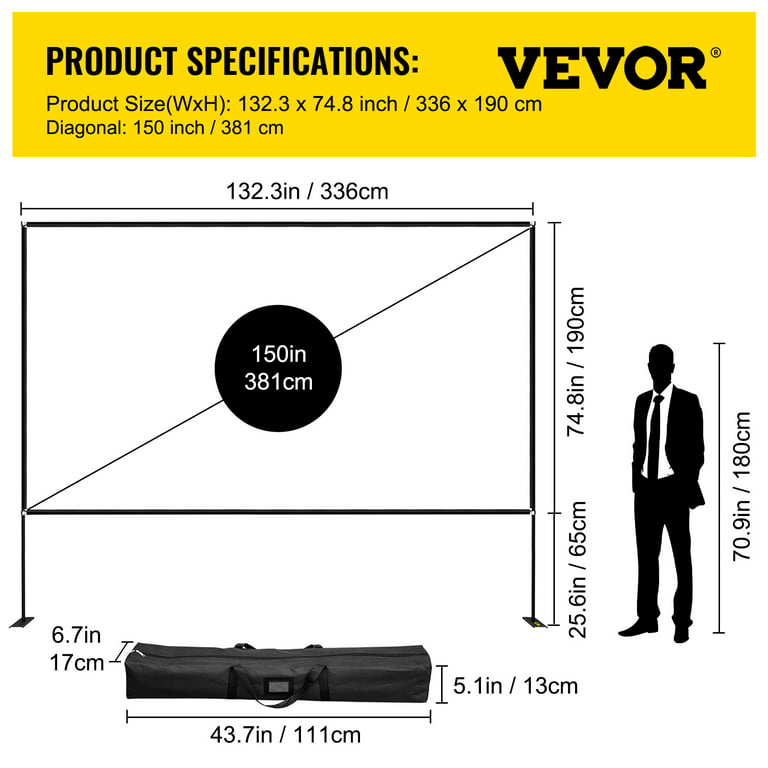What Makes the Right Cpu Speed for a Laptop? Evaluating Performance Factors
Introduction
When it comes to buying a laptop, one of the key performance factors to consider is its CPU (Central Processing Unit) speed. This seemingly technical aspect is crucial in determining how swift your laptop performs various tasks. But how fast should your laptop's CPU be? Simply going for the highest speed can sometimes result in an expensive overkill, while opting for the lowest speed might leave you frustrated with slow performance. This blog post simplifies the concept and explains what is a good CPU speed for a laptop based on different user needs. We will cover everything; from understanding what CPU speed is and why it matters, its impact on laptop performance, to choosing based on your computing needs.
What Is CPU Speed and Why Does It Matter?
Understanding CPU speed is the cornerstone to evaluating a laptop's efficiency and smooth performance. So, let's break it down:
The definition of CPU Speed: Often measured in gigahertz (GHz), CPU speed is essentially the velocity at which a CPU processes information. To put it in a nutshell, it is indicative of your computer's swift decision-making abilities.
The importance of CPU Speed: But, why does this speed matter? To answer this, we must delve a little deeper into the correlation between CPU speed and laptop performance. Here are the key reasons why CPU speed holds such great significance:
1. Smooth Execution of Tasks: At the core, the processor speed dictates the laptop's capacity to smoothly run various programs. Activities such as launching the operating system, initiating applications, and loading files, all lean heavily on the CPU speed.
2. Optimized Performance for Software Use: Diverse software and applications, especially those that are resource-intensive like video editing programs or games, perform their best with higher CPU speeds.
3. Enhanced Productivity: If productivity is pivotal to your computing needs, then the right CPU speed is your enabler. By ensuring a quick execution of tasks, it greatly improves your efficiency.
In light of the above points, assessing your laptop's CPU speed is integral to determine how deftly it can handle your computing needs. Whether you're a gamer, a creative professional, or someone who predominantly works with data, understanding the concept of CPU speed will guide you towards making the right choice.
How Does CPU Speed Influence Laptop Performance?
Understanding the interplay between a laptop's CPU speed and its performance is crucial in determining its efficiency. Here's an insightful breakdown of how the processor's speed directly influences your laptop's operation:
- Swift Task Completion: A higher CPU speed translates to a faster processing ability. This speed determines how efficiently your laptop executes tasks, leading to quicker responses and overall enhanced performance.
- Improved Responsiveness: Applications respond faster with a higher CPU speed. Whether it's a simple command or a complex program, the rapid CPU makes your laptop respond almost instantaneously.
- Enhanced User Experience: Higher CPU speeds make your laptop 'feel' faster, resulting in a smoother and lag-free user experience. Be it casual browsing, gaming, or multitasking, a faster CPU can handle it all efficiently.
While the CPU speed plays a significant role, it isn’t the only factor influencing laptop performance. Other elements come into play, creating a seamless synergy for optimal laptop functionality:
- Number of Cores: More cores allow your CPU to handle multiple tasks simultaneously without lag or slowing down.
- RAM Size: Larger RAM contributes to better multitasking and can support demanding applications, enhancing your laptop's overall performance.
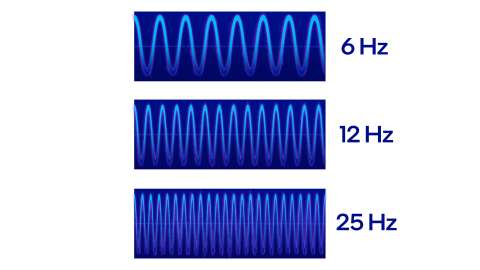
- Storage Type: SSD storage, as compared to traditional HDD, can vastly improve your laptop's speed up to 5 times and instantaneously load applications.
Given these factors, it's clear that picking the right CPU speed based on your specific needs can significantly boost your laptop's performance, ensuring a seamless computing experience.
What Factors Determine The Optimum CPU Speed for Different Users?
The ideal CPU speed isn't a standalone figure that suits everyone but depends on individual user requirements. Here are the key factors that dictate the optimum CPU speed needed:
1. Type of Tasks: The nature of the tasks you engage in on a regular basis has a drastic effect on the CPU speed required.
- Lightweight tasks: Simple tasks, such as web browsing, emails, and word processing, can easily be managed with a CPU speed ranging from 1 – 2.5 GHz.
- Demanding tasks: More power-intensive tasks like running graphic design apps, video editing software, or gaming require a CPU speed exceeding 2.5 GHz for seamless operation.
2. Multitasking: Multitasking puts a considerable load on the CPU. If you frequently run multiple applications simultaneously, a laptop with a high CPU speed will provide a smoother experience.
3. Future-proofing: Getting a laptop with a CPU speed higher than your current needs ensures that as software requirements evolve, you'll still be able to run newer versions of applications effectively, giving your laptop a longer life.
4. Balance of Power and Portability: Faster CPUs consume more power, which can reduce the battery life of your laptop. If portability and longevity are critical, you may need to opt for a slightly slower CPU to preserve battery life over raw power.
5. Other Hardware Components: While they don’t directly determine the CPU speed, factors like the number of cores, the type and capacity of RAM, and storage type (HDD/SSD) also influence the overall performance of the laptop.
Understanding these factors can help you evaluate your computing needs and choose the optimal CPU speed for your laptop.
How to Choose The Right CPU Speed for Your Laptop Based on Your Computing Needs?
Choosing the appropriate CPU speed for your laptop primarily relies on two necessary steps.
Step 1: Identify Your Computing Needs
Fundamentally, you'll need to elucidate on what your primary activities on the laptop would be. Various tasks have different processing power requirements.
- For Basic Computing: If your laptop usage consists mostly of internet surfing, checking emails, and working on documents, then a CPU with a base speed ranging from 2.0 – 2.5 GHz should suffice.
- For Advanced Computing: If you're going to engage in heavy-duty tasks such as graphic designing, video editing, or if you will be playing high-resource games, you should aim for a CPU speed that is above the 2.5 GHz mark.
Step 2: Consider Portability
An essential point to keep in mind is the power consumption of the CPU. Faster CPUs tend to drain the battery quicker, reducing the duration for which the laptop can be used without being plugged in.
- For Higher Portability: If you need your laptop on-the-go and the weight and battery life matter significantly to you, then you might need to compromise a bit on the CPU speed.
- For Maximum Performance: However, if performance is your primary requirement and you need the laptop mainly for stationary use, a high-speed CPU would be a perfect fit.
To get a well-rounded laptop, consider other critical factors, including the number of cores and threads in the CPU, as well as the type and capacity of the RAM. Your chosen laptop should ideally offer the perfect synergy between these elements to ensure seamless functionality.
Conclusion
Identifying the right CPU speed can significantly enhance your laptop's performance and streamline your workflow, thus optimizing your computing experience. By understanding how CPU speed impacts performance and identifying your specific needs, you should be able to make an informed decision about what is a good CPU speed for a laptop. The key is to balance power and efficiency based on your individual use case, ensuring you get the best value for your money.
Related FAQs about what is a good cpu speed for a laptop
How can I improve my CPU Speed?
Improving your CPU speed can be accomplished through overclocking, but this should be done cautiously as it may lead to overheating. Regular system maintenance, closing unnecessary running tasks, checking for malware, and upgrading hardware can also boost CPU performance.
What is more important CPU speed or RAM for laptops?
Both CPU speed and RAM size are critical for the performance of your laptop. The CPU speed governs how quickly your tasks run, while RAM size determines how many tasks you can undertake at once without slowing down the system.
What CPU speed is sufficient for gaming laptops?
For gaming laptops, a CPU speed above 3.5 GHz is often considered good. This is because games, especially modern ones, tend to be heavy and require high processing speed for a smooth and engaging gaming experience.



